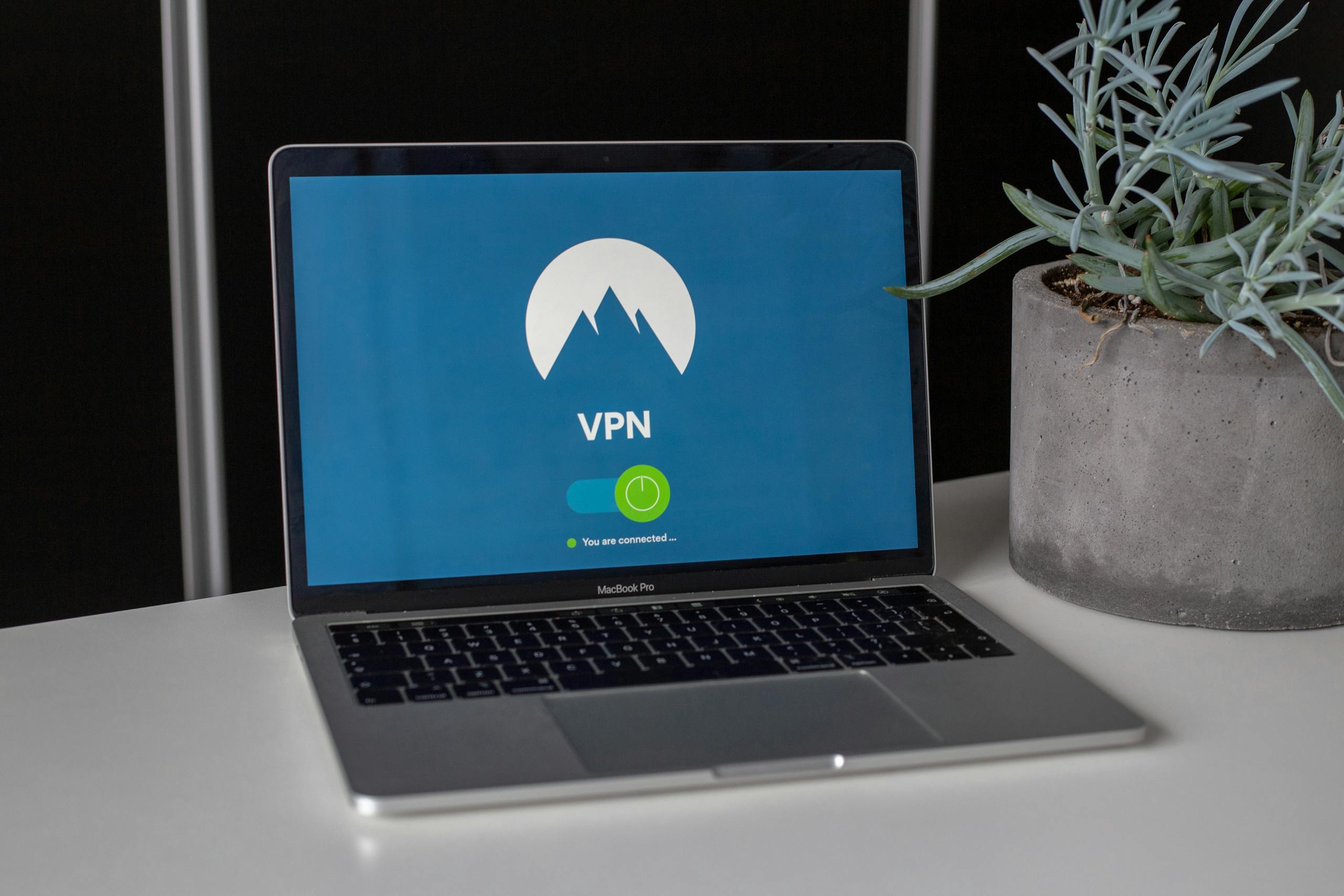What is a VPN?
In an increasingly digital world, the need for online privacy and security has never been more paramount. One solution that has garnered significant attention is the Virtual Private Network, commonly known as a VPN. But what exactly is a VPN, and how does it benefit users?
A VPN is a technology that creates a secure and encrypted connection between your device and a remote server operated by the VPN provider. This connection masks your IP address, making your online activities more anonymous. When you connect to the internet through a VPN, your data is routed through a secure tunnel, protecting it from potential hackers and cyber threats.
One of the primary benefits of using a VPN is enhanced privacy. By concealing your IP address, a VPN allows you to browse the web without being easily tracked by websites, advertisers, or even your Internet Service Provider (ISP). This feature is especially valuable for individuals who frequently use public Wi-Fi networks, which are often vulnerable to security breaches.
Moreover, a VPN can help bypass geo-restrictions. Many users employ VPNs to access content that may be restricted in their region, such as streaming services or websites. By connecting to a server in a different country, you can enjoy a more extensive array of content, widening your online experience.
Why do people use VPNs in Pakistan?
In recent years, the use of Virtual Private Networks (VPNs) has surged in Pakistan, driven by a multitude of factors that speak to the complexities of digital access in the country. As internet censorship and privacy concerns proliferate, VPNs have emerged as an essential tool for many users seeking unfiltered access to global content and enhanced online security.
Circumventing Censorship
One of the primary reasons Pakistanis turn to VPNs is to bypass government-imposed restrictions on certain websites and social media platforms. The Pakistan Telecommunication Authority (PTA) has been known to block access to various sites, often citing reasons related to national security or morality. By employing a VPN, users can effectively mask their internet traffic, allowing them to access restricted content without fear of reprisal.
Ensuring Privacy and Security
With increasing awareness of online privacy issues, many individuals in Pakistan are increasingly concerned about data security. VPNs offer a layer of encryption, safeguarding personal information from potential cyber threats and identity theft. This is particularly important given the growing incidence of cybercrime and surveillance in the region.
Accessing International Content
Pakistani citizens are also motivated by the desire to access geographically restricted content from streaming services, gaming platforms, and news websites. Whether it’s watching the latest series on a global streaming service or accessing foreign news outlets, a VPN can provide the necessary access to these resources, enriching the user experience.
Enhanced Online Freedom
Ultimately, using a VPN symbolizes a broader quest for online freedom. For many in Pakistan, the ability to explore the internet without hindrance is fundamental to expression and information exchange. As digital landscapes continue to evolve, VPNs serve as a vital mechanism for ensuring that voices in Pakistan are heard and that access to information remains unimpeded.
10 Benefits of Having a VPN: Enhancing Your Online Experience
In the digital age, where our lives meld seamlessly with technology, ensuring online safety and privacy has never been more crucial. Virtual Private Networks (VPNs) have emerged as a pivotal tool for individuals and businesses alike, seeking to protect their information from prying eyes and navigate the internet more freely. While many users associate VPNs primarily with privacy, their advantages extend far beyond simple anonymity. Let’s delve into the ten benefits of using a VPN and why it should be an integral part of your online toolkit.
1. Enhanced Security
One of the primary benefits of a VPN is the significant enhancement of your online security. By encrypting your internet connection, a VPN makes it considerably more difficult for hackers, cybercriminals, and malicious entities to access your data. This is especially critical when using public Wi-Fi networks, which are notoriously vulnerable to security breaches. With a VPN, sensitive information such as login credentials, credit card numbers, and personal messages can be shielded from unauthorized access.
2. Improved Privacy
In an era where data privacy is increasingly under threat, a VPN provides a robust layer of protection against mass surveillance and data tracking. By masking your IP address and routing your internet traffic through a secure server, you can browse the web without being tracked by ISPs, corporations, or government agencies. This not only secures your online activities from prying eyes but also allows you to maintain a greater degree of personal privacy in your digital interactions.
3. Bypassing Geo-Restrictions
Many online services restrict access based on geographic location, often resulting in frustration for users who wish to access content available in other countries. A VPN enables you to bypass these geo-restrictions by allowing you to connect to servers in different regions, effectively granting you access to websites and streaming services as if you were physically located in those places. Whether you want to stream a show on Netflix that is only available in another country or access a specific website, a VPN makes it possible.
4. Safer Online Shopping
E-commerce is a significant aspect of modern life, but it also presents risks related to data security. When making online purchases, you often provide sensitive personal and financial information. A VPN helps to encrypt your data during transactions, preventing identity theft and credit card fraud. It allows you to shop with peace of mind, knowing that your information is not exposed to potential cyber threats.
5. Prevention of Bandwidth Throttling
Internet Service Providers (ISPs) sometimes throttle bandwidth for specific activities, like streaming or gaming, to manage network traffic. This can lead to frustratingly slow speeds during peak usage times. A VPN can help prevent ISP throttling by masking your online activities, making it difficult for ISPs to see what you’re doing and, hence, reducing the likelihood of imposed speed limits. By maintaining a consistent speed, you can enjoy uninterrupted streaming and seamless online gaming experiences.
6. Access to Better Deals and Pricing
Did you know that prices for flights, hotel bookings, and other online services can vary based on your geographic location? By using a VPN to change your virtual location, you may discover better deals or lower prices on services. This tactic is increasingly popular among savvy travelers and consumers who want to maximize their savings by taking advantage of regional pricing differences.
7. Secure Remote Access for Businesses
For businesses, especially with the rise of remote work, VPNs are invaluable. They provide employees with secure access to company networks from remote locations, allowing them to access important files and perform their duties safely. This level of security is paramount in protecting sensitive corporate data and preventing unauthorized access from outside sources. It enables a more flexible and efficient work environment while safeguarding company assets.
8. Protection from Malware
Many VPN services come equipped with additional features such as malware protection and ad-blocking capabilities. By using a VPN, you can reduce your vulnerability to phishing attacks and harmful websites. These features act as an additional layer of defense, helping to keep your device secure from malicious software and ensuring a safer browsing experience overall.
9. Improved Online Gaming Experience
Gamers are often frustrated by issues like lag, latency, and targeted DDoS attacks from competitors. A VPN can help to address these problems by routing traffic through optimized servers, reducing ping times and providing a more stable connection. Additionally, it offers protection against potential DDoS attacks, allowing players to enjoy their gaming sessions without fear of interruptions. For competitive gamers, this advantage can be particularly crucial.
10. Peace of Mind
In a world where digital privacy is frequently compromised, having a VPN provides peace of mind. Whether you are browsing the web, making online transactions, or simply using social media, knowing that your data is encrypted and your online presence is shielded from unwanted scrutiny makes your internet experience far more enjoyable. The assurance that you are taking steps to protect yourself online fosters a sense of empowerment and control over your digital life.
Conclusion
As we navigate a complex digital landscape, the importance of ensuring online security and privacy cannot be overstated. A VPN not only provides enhanced security and privacy but also offers various additional benefits that can significantly improve your online experience. From bypassing geo-restrictions to safeguarding your sensitive data during online activities, a VPN is not merely a tool for anonymity; it is a vital resource for today’s internet users.
Whether you are an individual seeking personal security or a business looking to protect sensitive information, integrating a VPN into your online practices should be a fundamental step toward achieving a safer and more liberated internet experience. As the digital world continues to evolve, embracing tools like VPNs will be paramount in navigating the complexities of internet usage with confidence.






